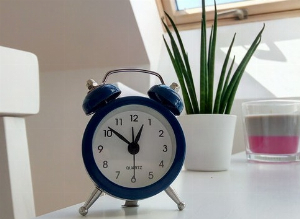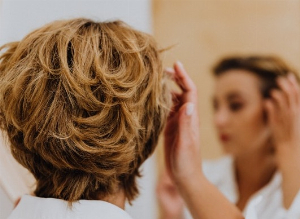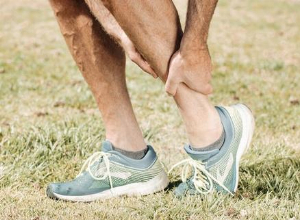How to take care of your eyes?
Published 16 Jan 2023 • By Candice Salomé
According to the WHO, more than 253 million people worldwide are visually impaired. And this number is increasing due to the ageing of the population.
Myopia, astigmatism, glaucoma, Age-related Macular Degeneration (AMD), etc., all these eye diseases can be treated or delayed, if people learn to take better care of their eyes.
So what are the right things to do to keep your eyes healthy and protect your eyesight? What are the risk factors for eye disorders?
We explain it all in our article!

From birth to adulthood, our eyesight evolves and our eyes have never been as much in demand as they are today! Indeed, we spend hours in front of our screens (computer, smartphone, tablet, etc.), which overworks our eyes. Watery eyes, reduced vision, dry eyes or headaches should prompt you to see a doctor.
But it is also possible to take a better care of your eyes on a daily basis!
What can you do to keep your eyes healthy and maintain good eyesight?
Our eyesight is very important to us, so it is essential to take good care of our eyes and keep them healthy.
Have regular eye check-ups
For adults, it is recommended to have a check-up with the ophthalmologist every 12 months. After the age of 40, more regular visits are necessary. Several eye diseases are linked to ageing (cataract, glaucoma, AMD) and it is important to treat them as soon as their presence is suspected.
For children, there are several routine eye examinations: within 72 hours of birth, between 6 and 8 weeks old, around one or two/two and a half years old, and around 4 or 5 years old, once the child starts school.
Follow a healthy diet
The health of our eyes also depends on what we eat. Vitamin A is necessary for the proper functioning of certain visual cells in the retina (rods). If there is a deficiency and it is not treated, you may suffer from dry eyes and this can lead to serious complications. Vitamin A is present in large quantities in fish liver oil, vegetables and dairy products. Remember to include these products in your diet.
Do not overexpose yourself to sun
The sun has certain benefits for the body but can be very harmful when it comes to our eyes. Ultraviolet (UV) radiation can easily reach the ocular surface if you do not wear sunglasses outdoors. The majority of the rays are then absorbed by the cornea and the lens, leading to cataracts (opacification of the lens, which leads to gradual loss of vision).
In addition, 1 to 2% of ultraviolet rays can reach the retina, thus increasing the risk of AMD.
It is recommended to wear quality filtering glasses. To make sure your sunglasses can really protect your eyes, check for the CE mark, which proves that they comply with the current standards. You can also choose lenses with the UV400 mark, which filter out 100% of UVA and UVB rays.
Category 1 and 2 glasses offer very light protection. If you are planning to be in the sun, it is recommended to choose category 3 lenses. Category 4 lenses are only suitable for exceptional light conditions - at sea or in the mountains - but are not allowed when driving.
Use screens carefully
It is now well known: we must be very careful with blue light. Blue light is mainly emitted by the sun, and we are exposed to it outdoors, but also for long periods indoors, particularly with LED lighting and screens.
Blue light prematurely ages the retina and even contributes to the development of AMD.
It is therefore recommended to limit the time spent in front of screens and to reduce their brightness in the evening. It is also possible to wear filtering glasses in case of prolonged exposure, if you work behind a computer, for example.
In addition, if you like to read a book before going to bed, it is advisable to watch out for lighting that is too dim or too bright, as it damages the eyes. Do not hesitate to place a source of light directly pointed at your book.
Do not wear contact lenses non-stop
Even though contact lenses offer unparalleled comfort, to keep your eyes healthy, it is essential to wear them correctly, especially in the summer. Every day, the lens gets covered with deposits that adhere to its surface and may cause irritation, allergies or even infections.
It is important to clean your lenses every day with a special cleaning product. Take them out every night, so that your eyes are well oxygenated.
At the swimming pool, it is essential to wear protective glasses to protect your lenses from germs found in the water. The risk of contamination is lower in the sea, but it is better to swim without your lenses or to use disposable lenses.
Diabetes: monitor your eyesight regularly!
If you have diabetes, it is highly recommended that you have your eyesight checked every year.
Excess sugar in the blood can damage the blood vessels that supply the cells of the retina, which can lead to visual impairment and even blindness if diabetic retinopathy is not detected early enough.
A regular examination of the back of the eyes allows for an early diagnosis. This way, preventive treatment can be started right away to avoid irreversible visual complications.
The ageing of the eyes is an inevitable phenomenon. However, it is possible to maintain eye health and delay age-related eye diseases by taking good care of our eyes and having regular check-ups.
Starting from the age of 40, it is recommended that you see an ophthalmologist regularly and that you get into the habit of wearing UV and blue light protective glasses.
Smoking is known to cause oxidative stress to the retina and lens, so it is advisable to stop smoking as soon as possible.
Give it a like and share your thoughts and questions with the community in the comments below!
Take care!
Sources :
Préserver la santé de ses yeux, c'est important, Notre Famille
Comment faire pour prendre soin de ses yeux ?, Santé Magazine
Comment préserver sa vue, Le Figaro Santé
Comment préserver son capital vision à tout âge ?, Giphar
Quand la vision se dégrade…, Allo Docteurs
Les 5 commandements pour prendre soin de ses yeux, 20 Minutes

 Facebook
Facebook Twitter
Twitter


